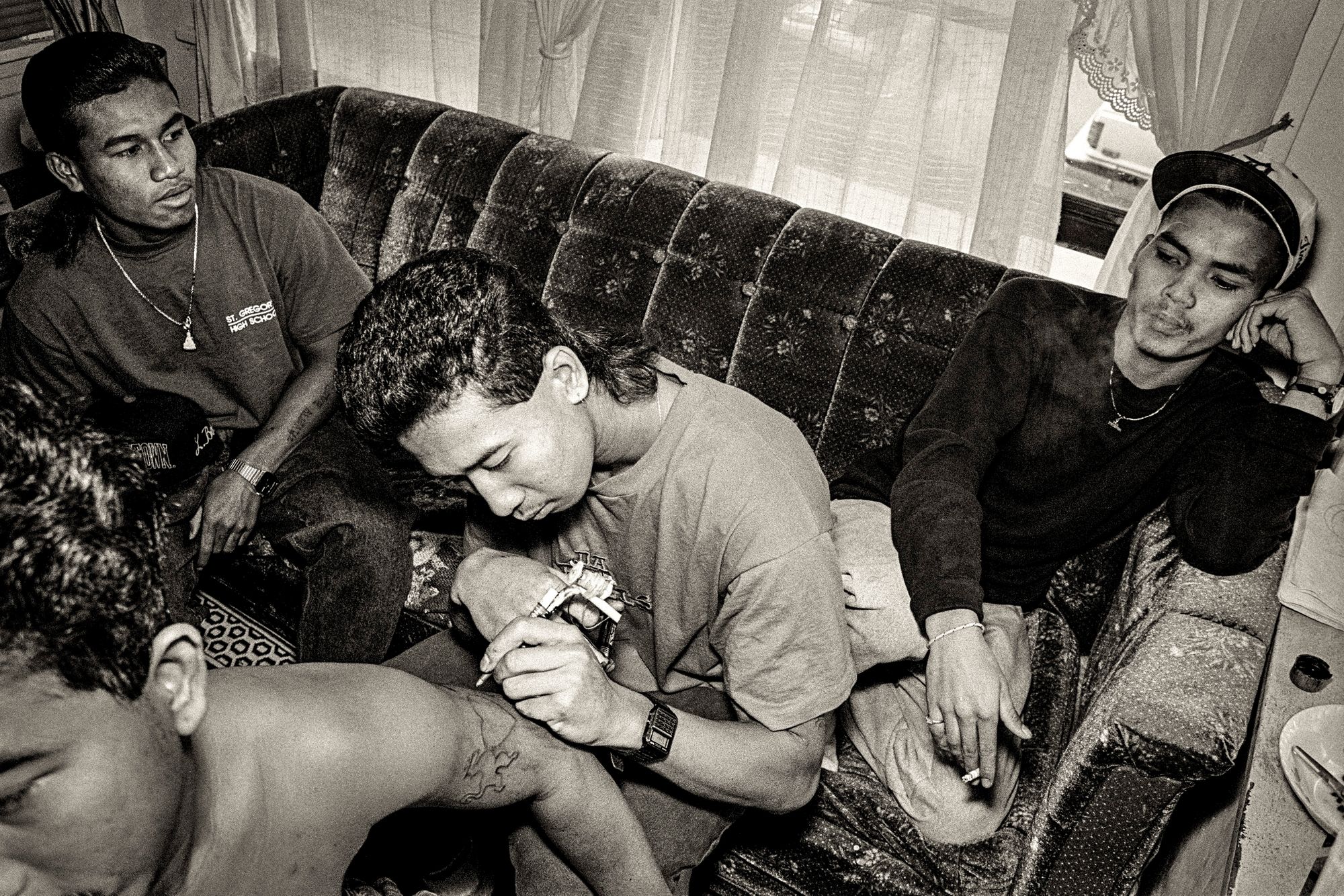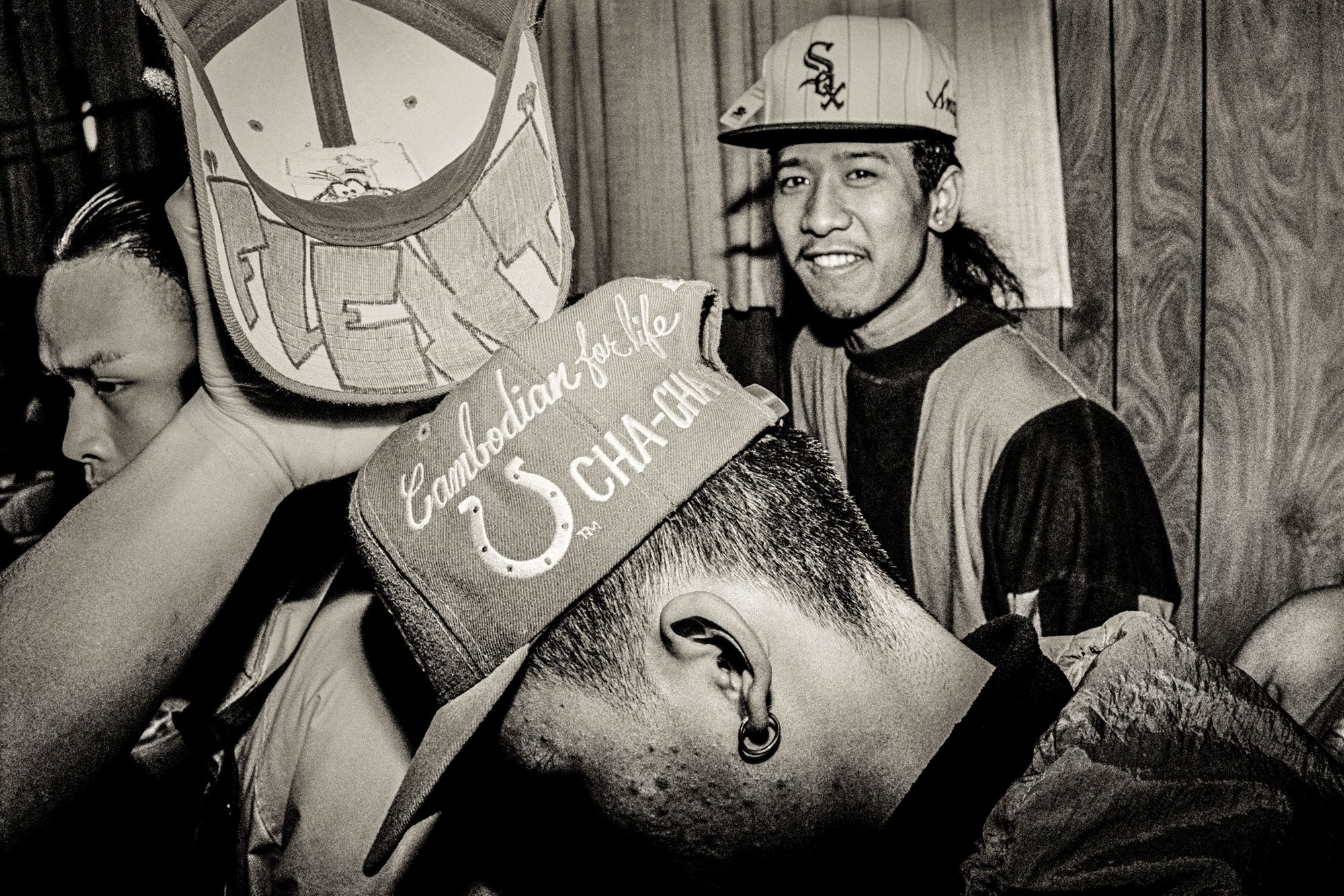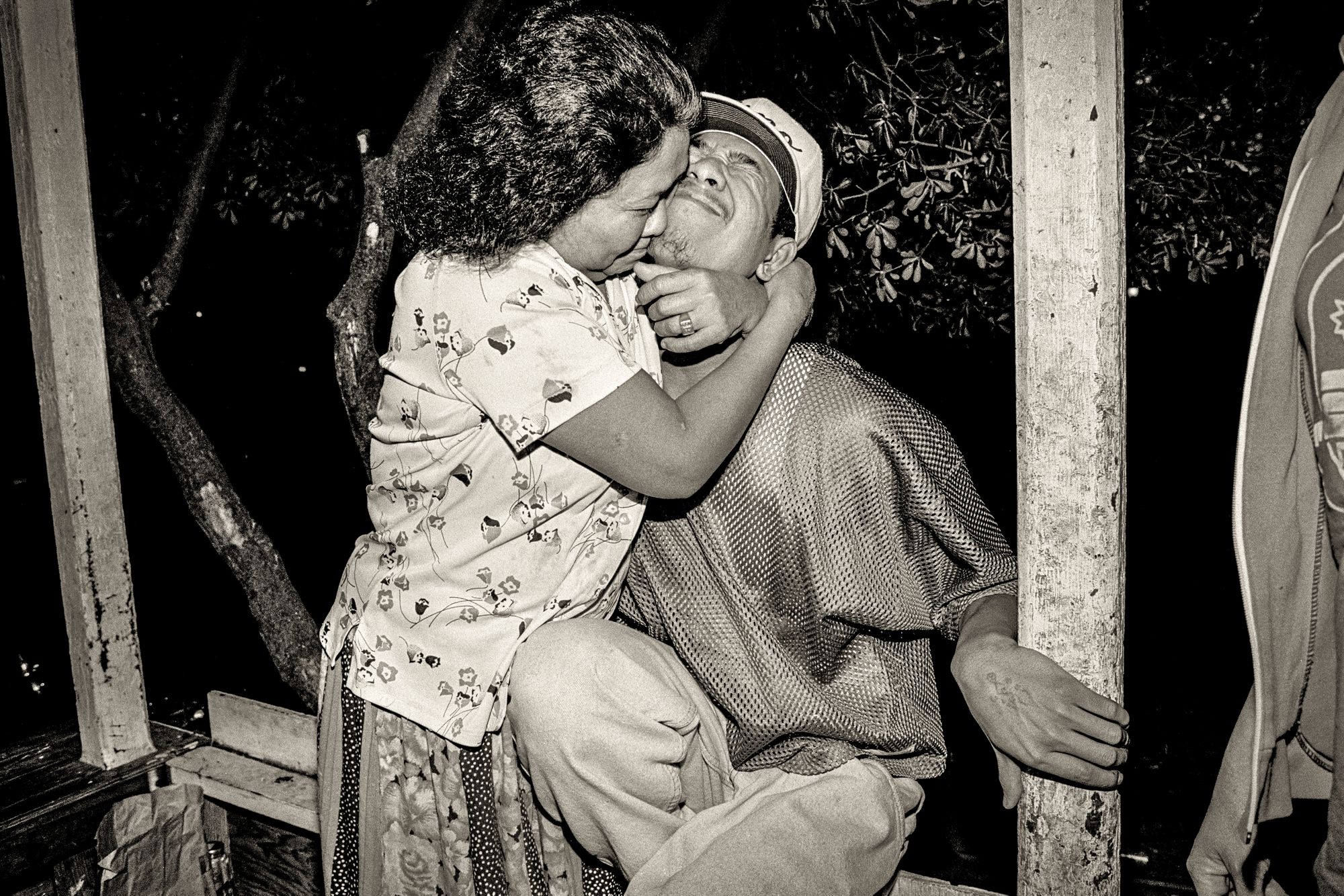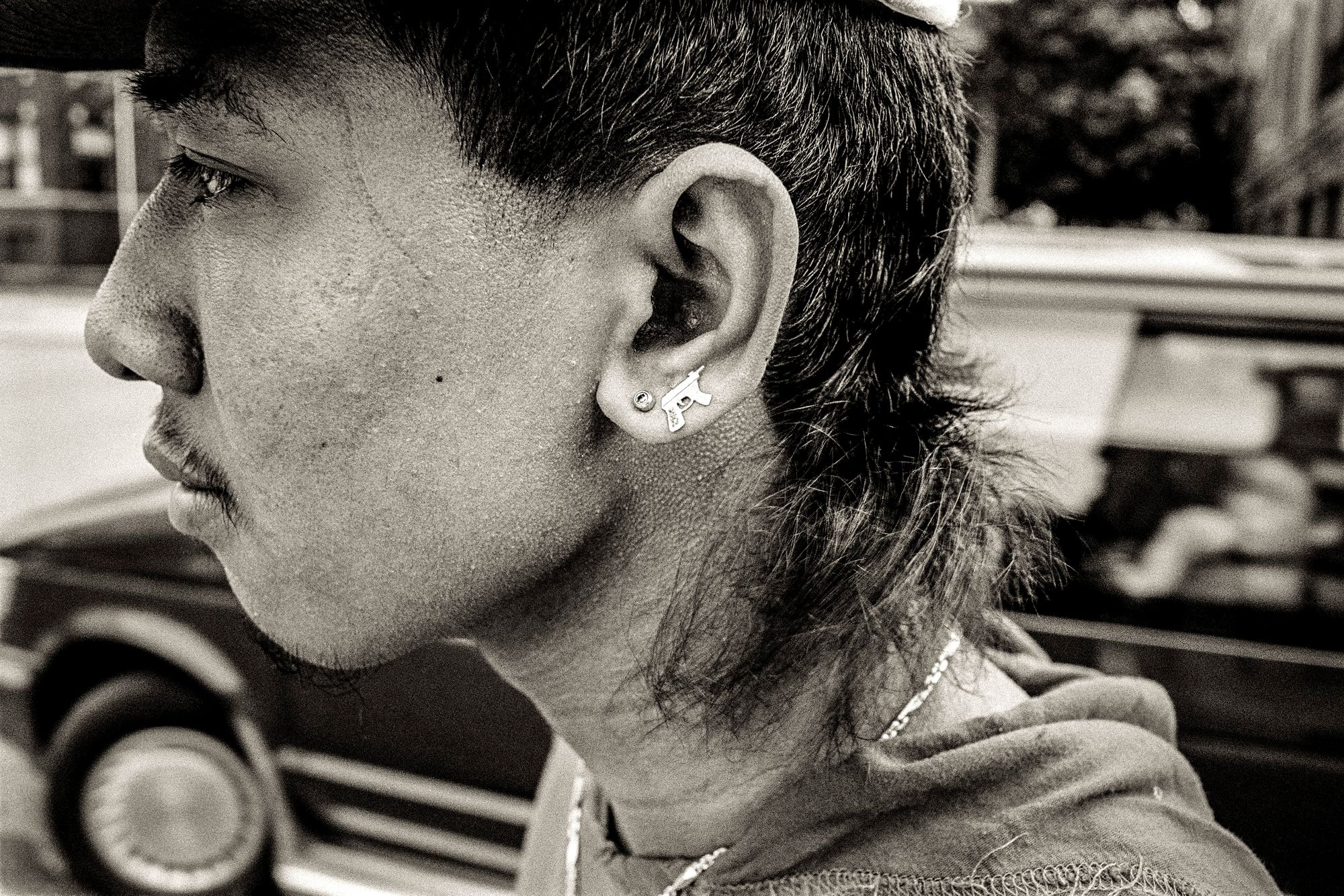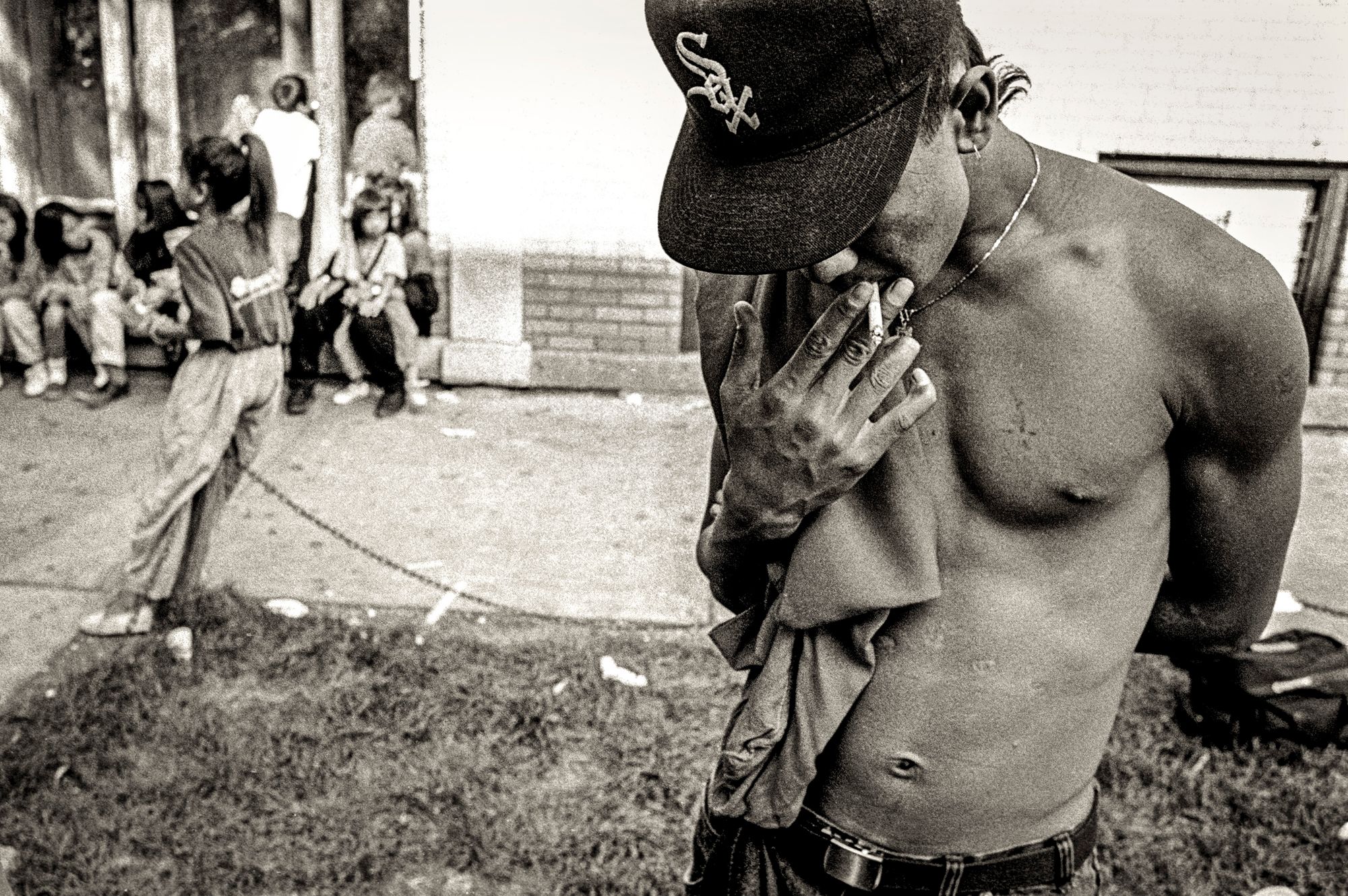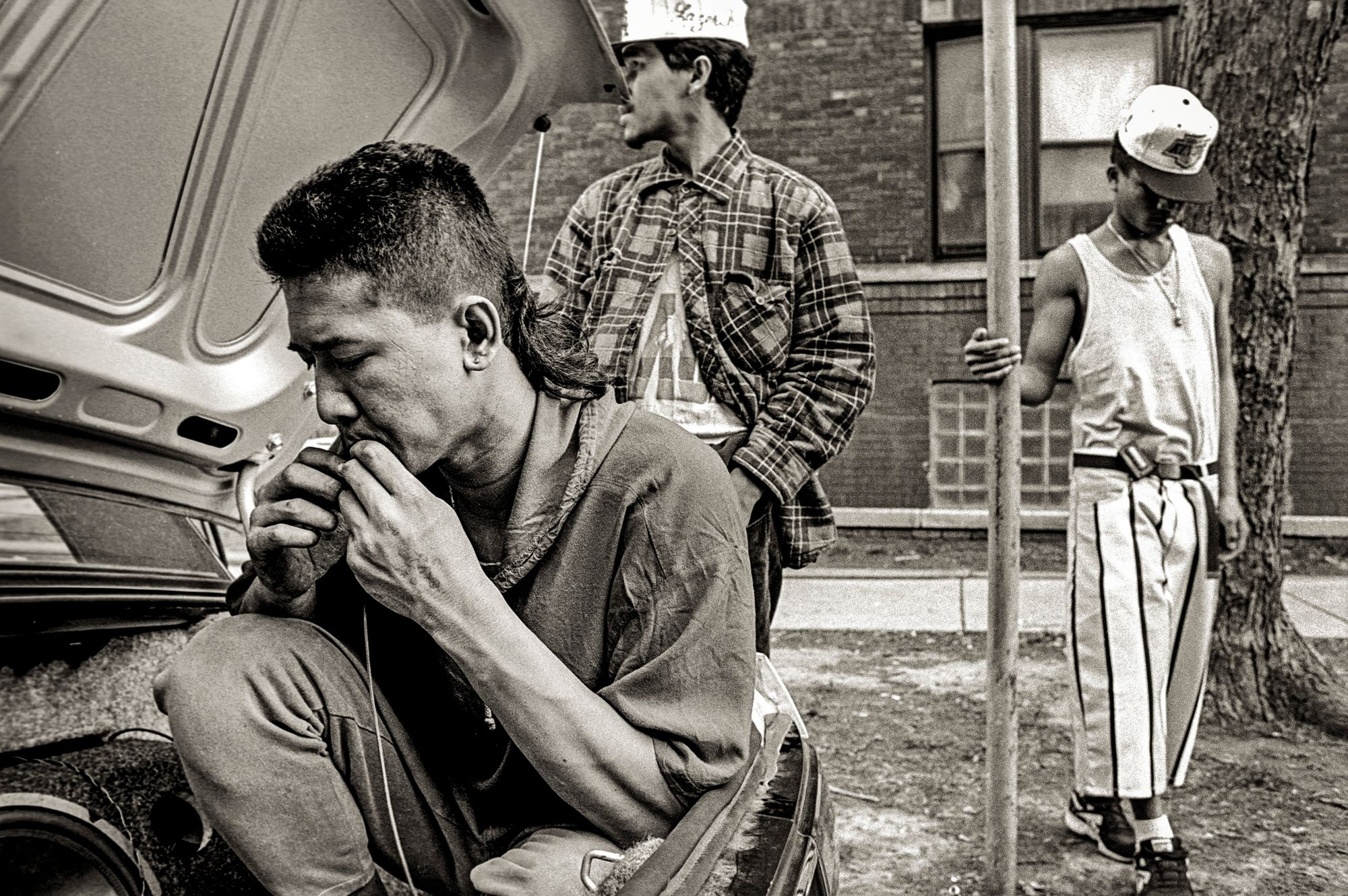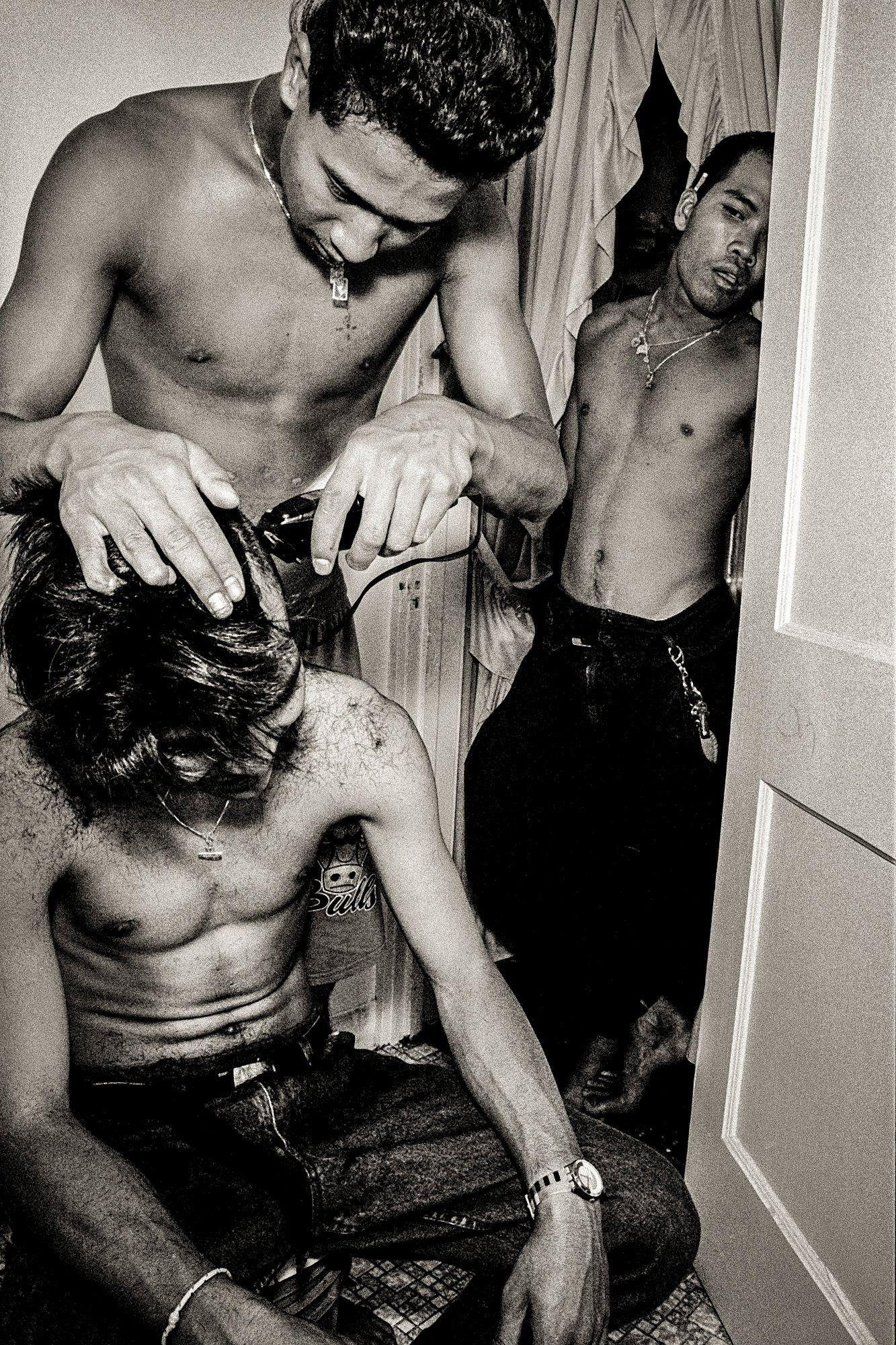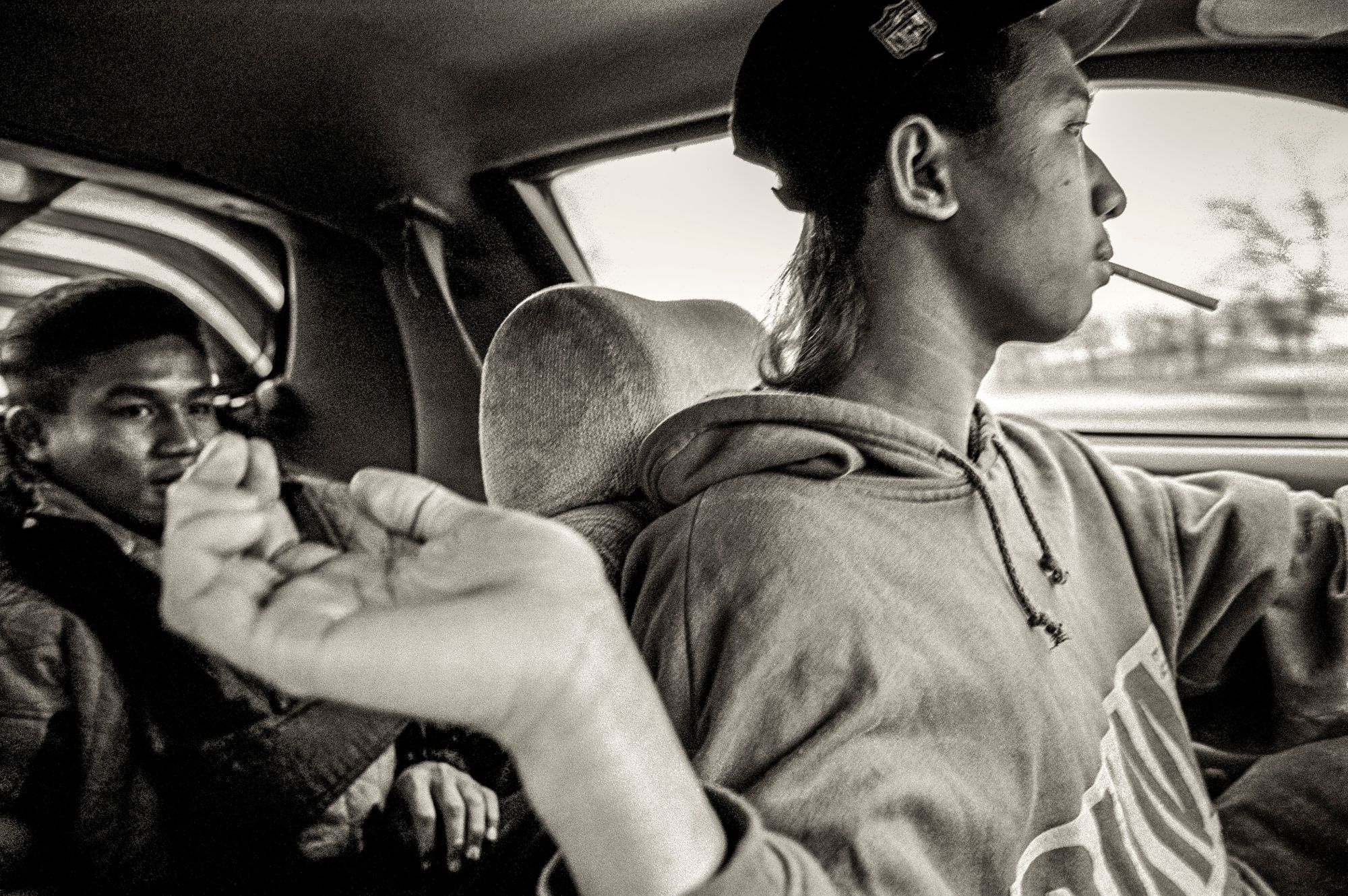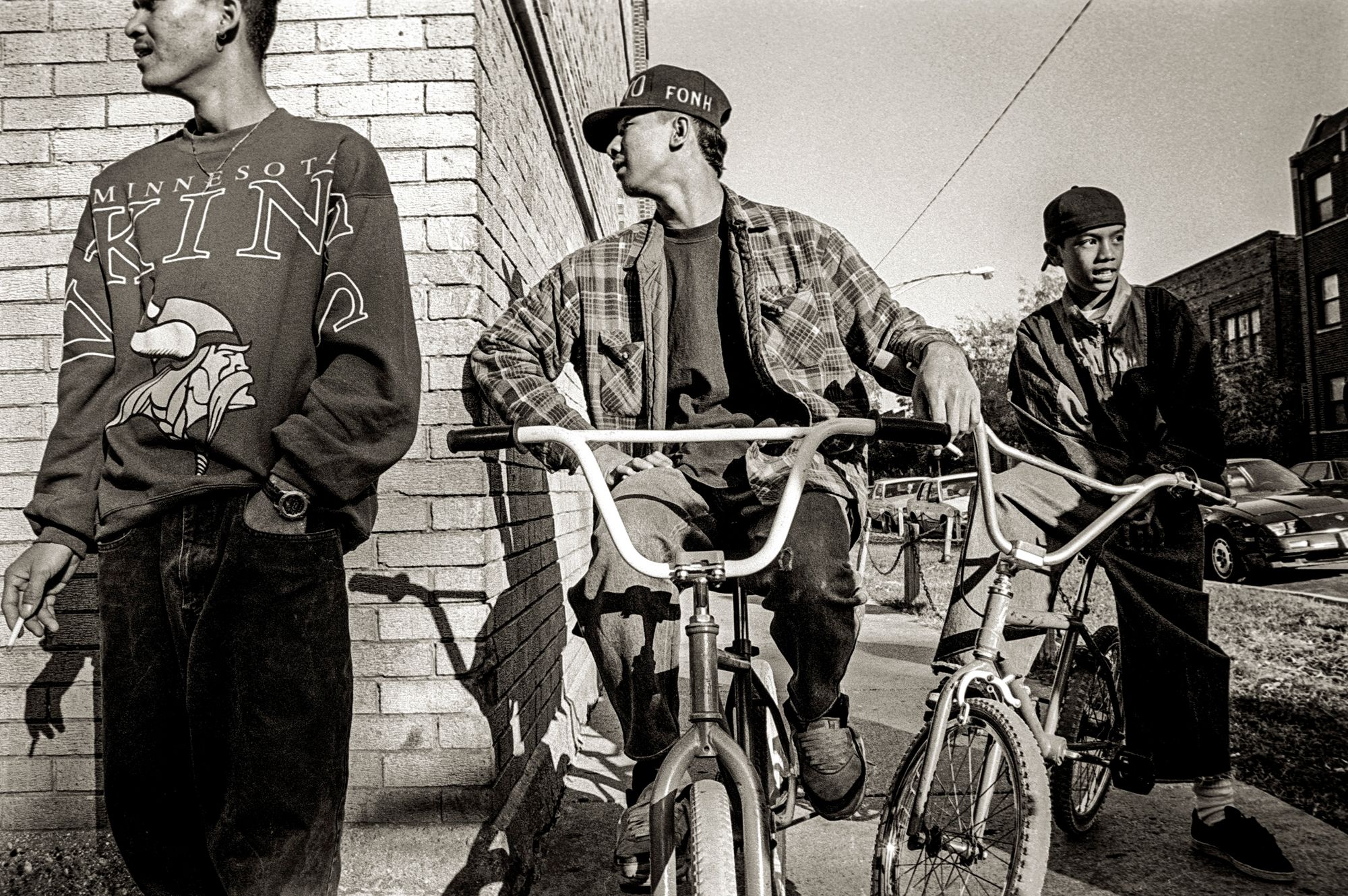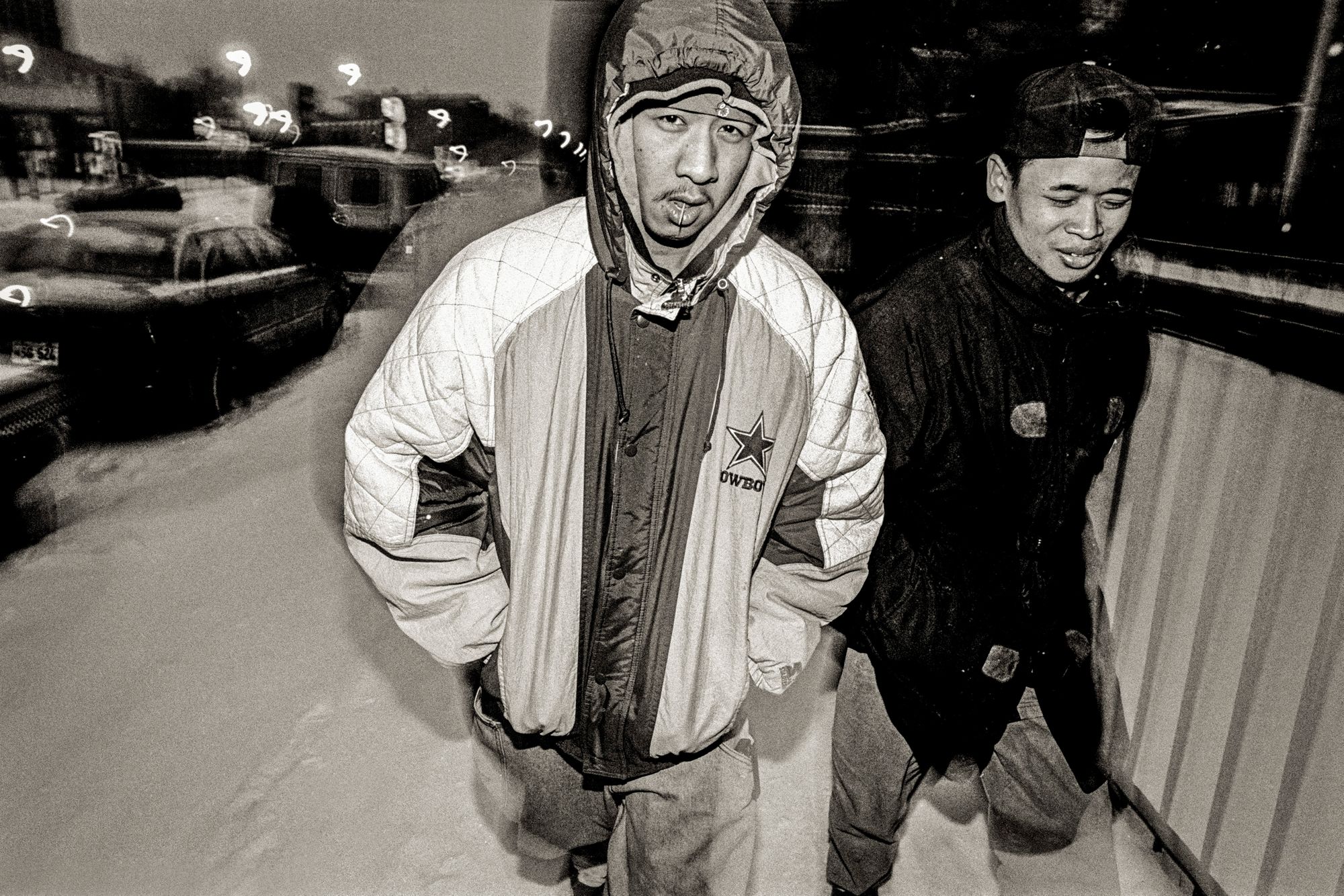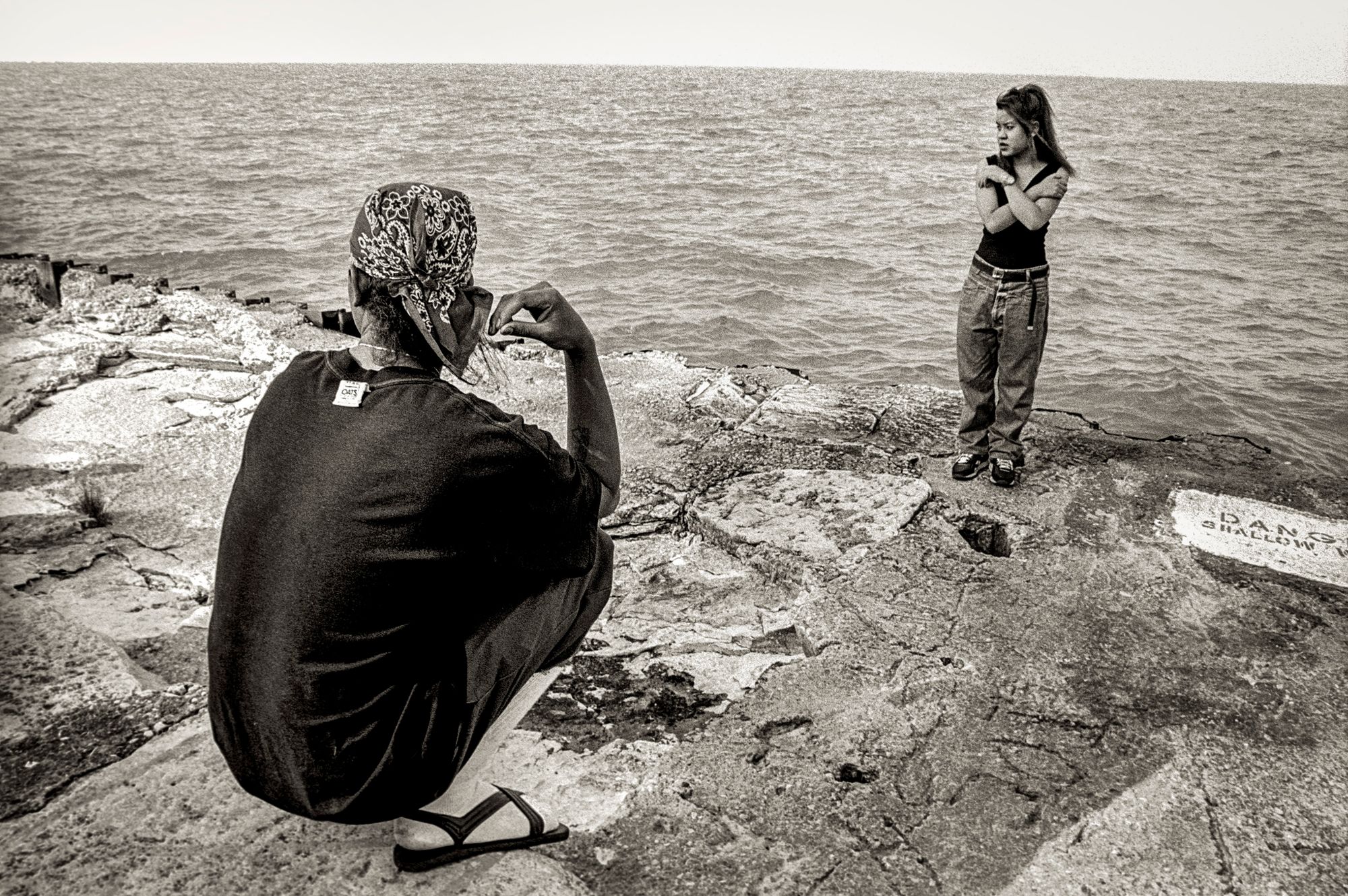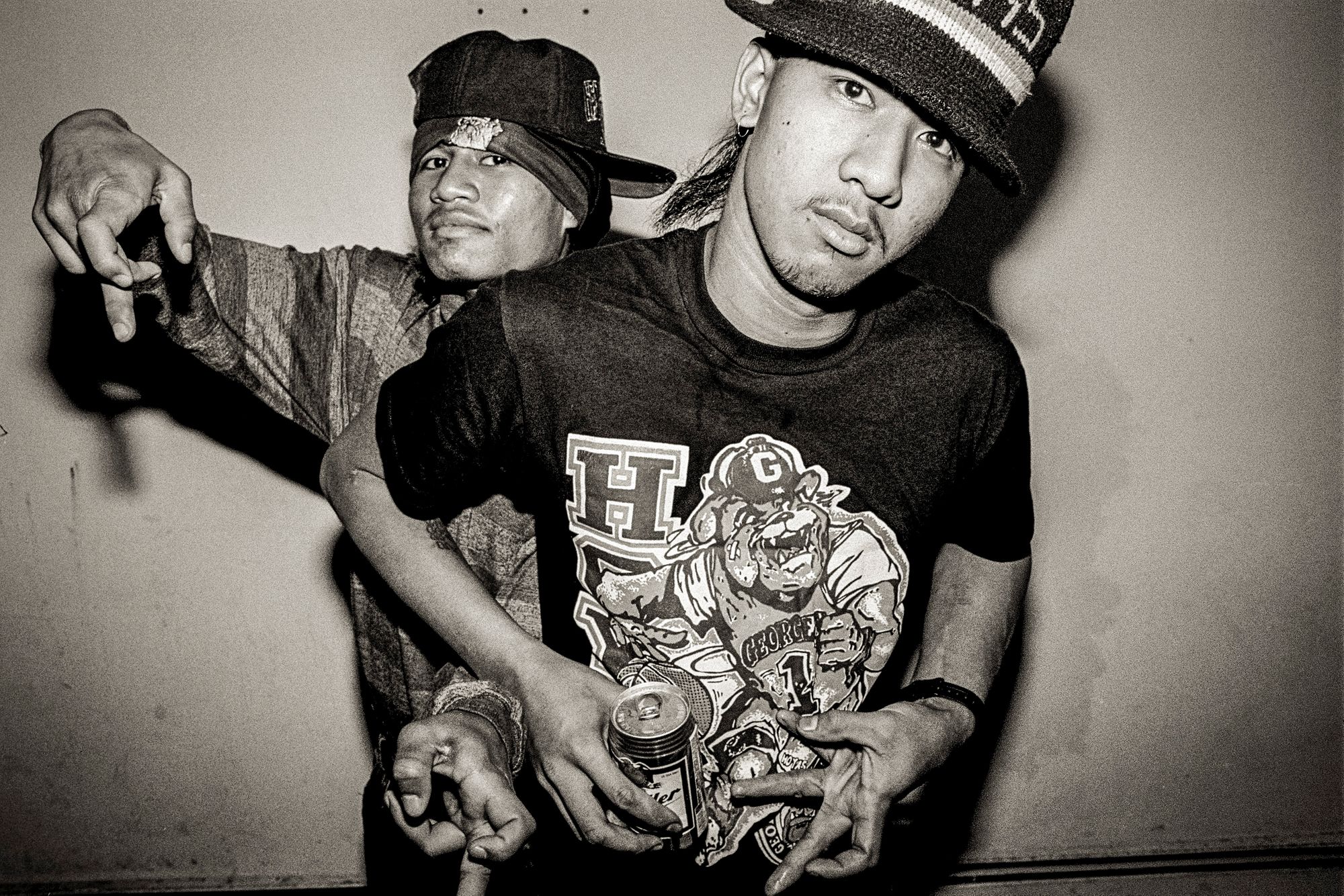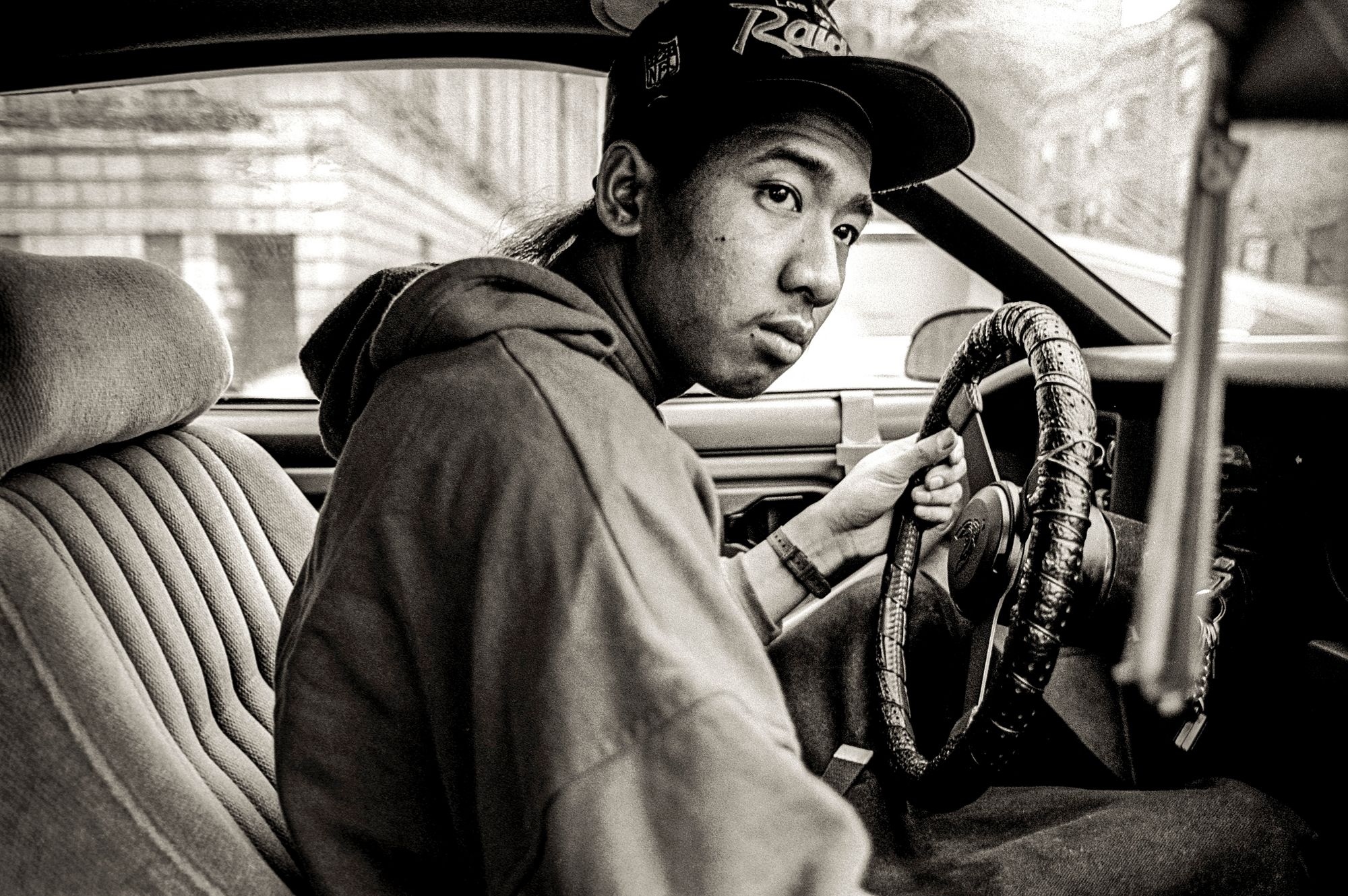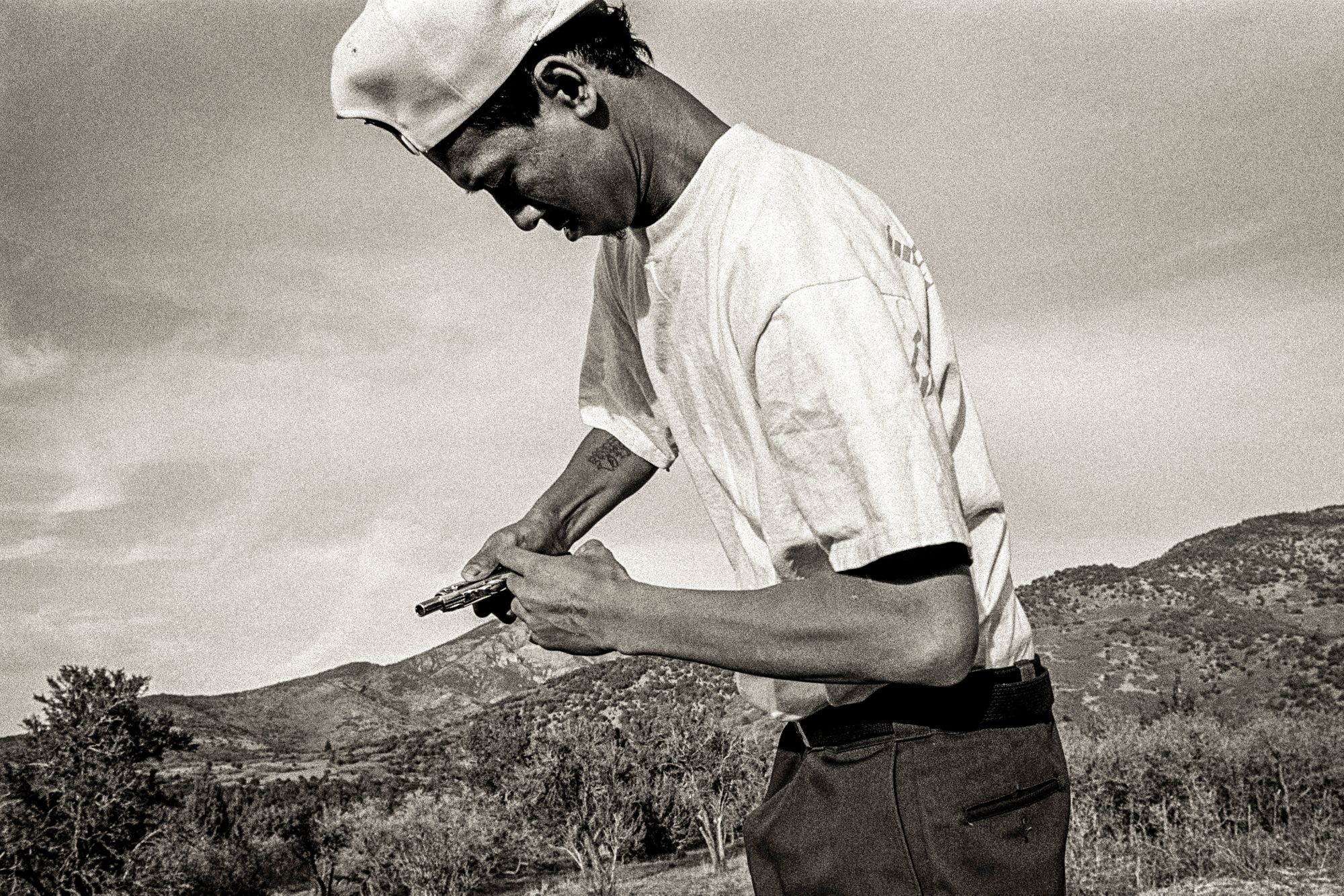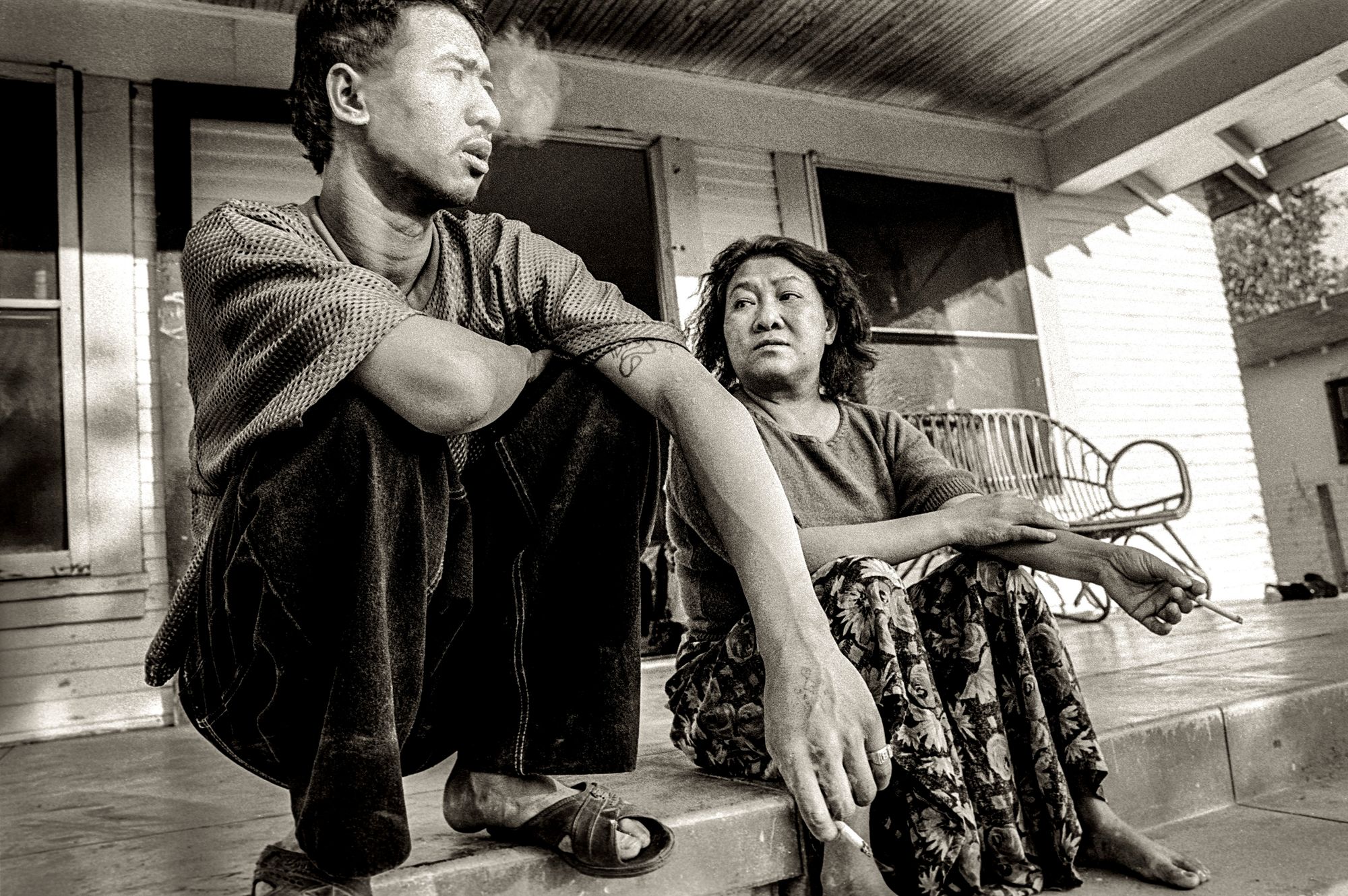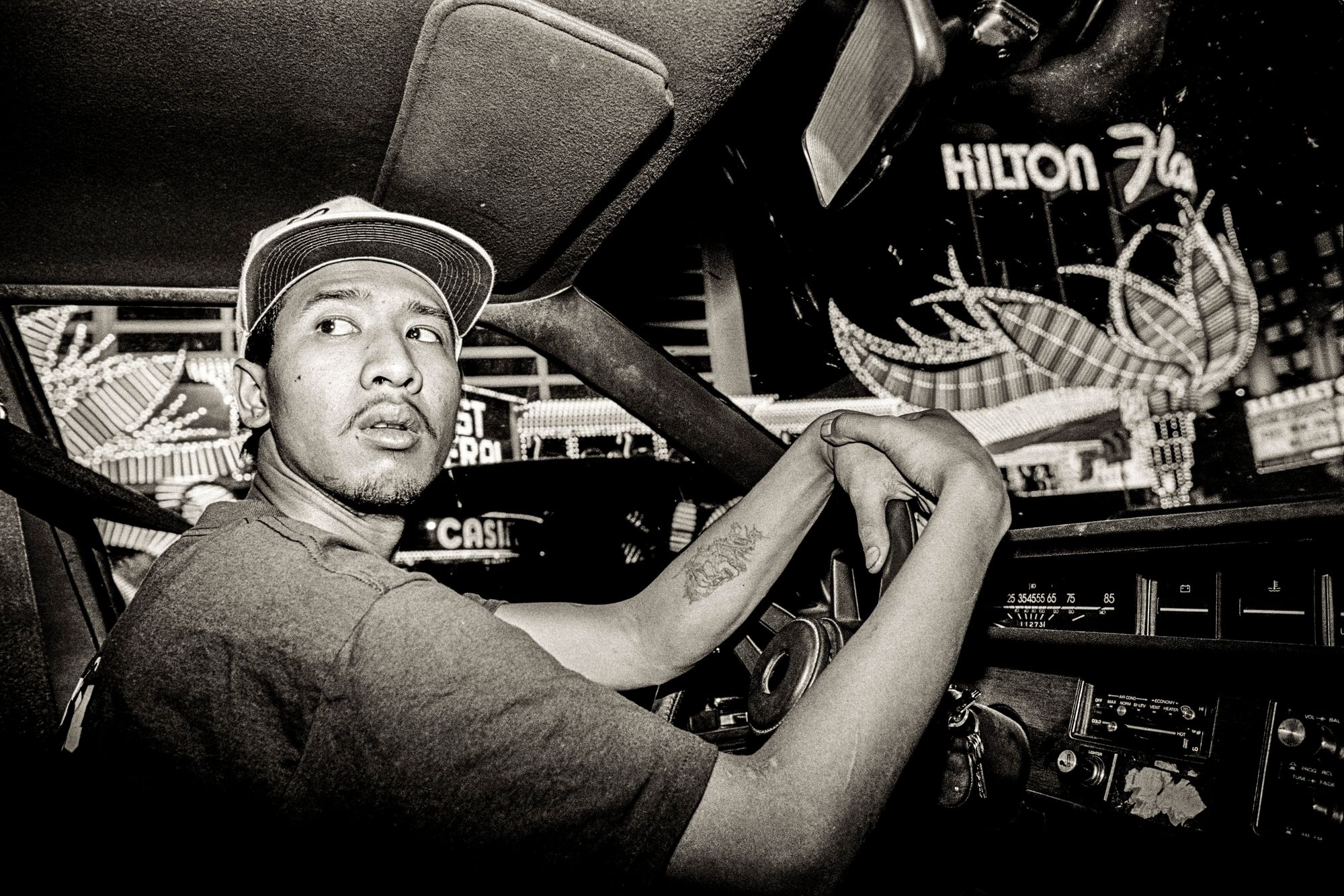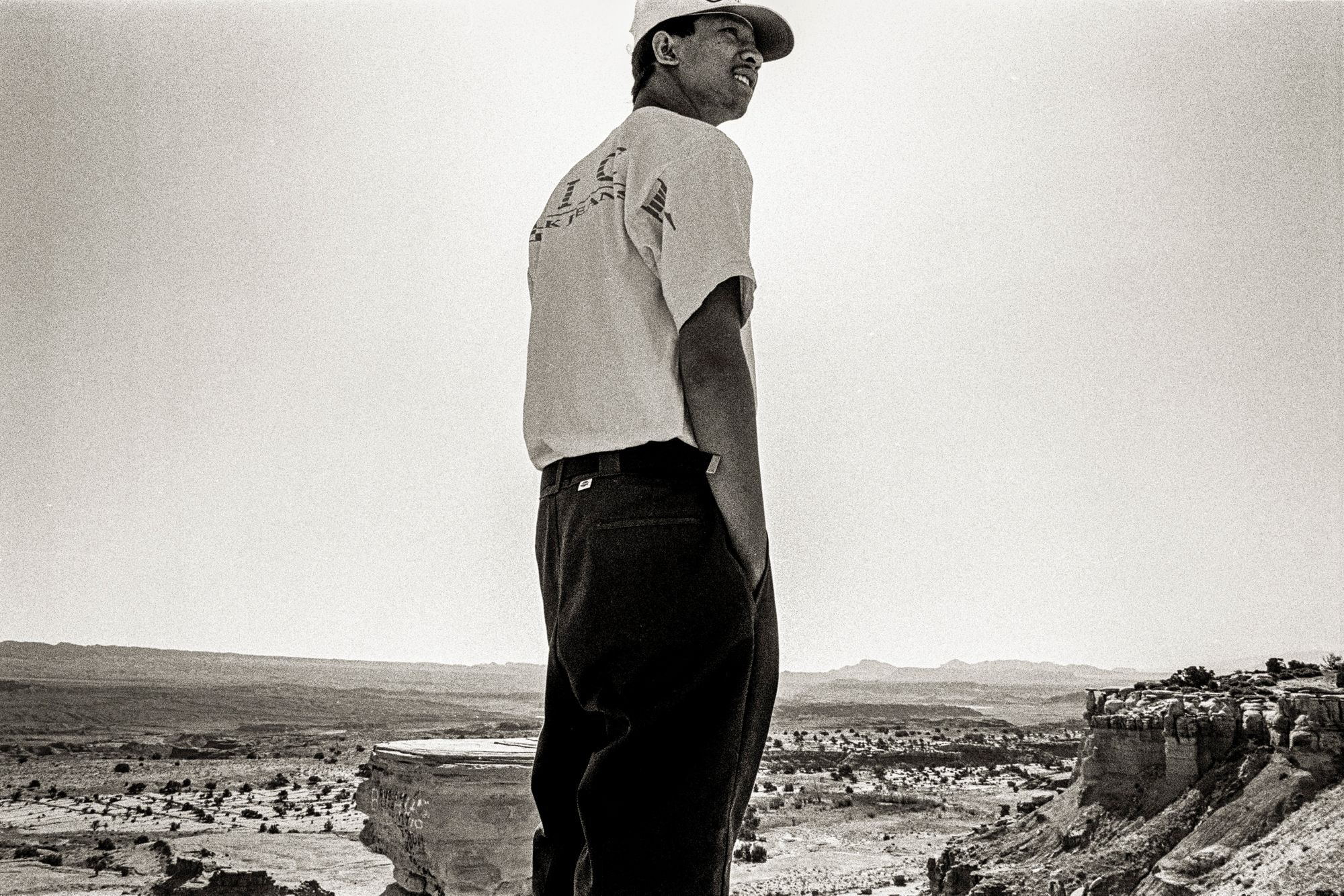Sapeoun, aka Gino, posing (left) on the side of a road outside Bakersfield, California in October, 1993. In the photograph on the right, Gino stops briefly to let me take his portrait in Tacoma, Washington this week, almost exactly 30 years later. Stories like Gino's are why I became a photographer - a survivor of America's war in Southeast Asia, the Khmer Rouge genocide, a refugee, a member of some of the toughest Cambodian street gangs in the US. Someone whose life was shaped by war, genocide and trauma, but who has survived despite the odds stacked against him. Continues below.
The survivor - Gino's story
by Stuart Isett

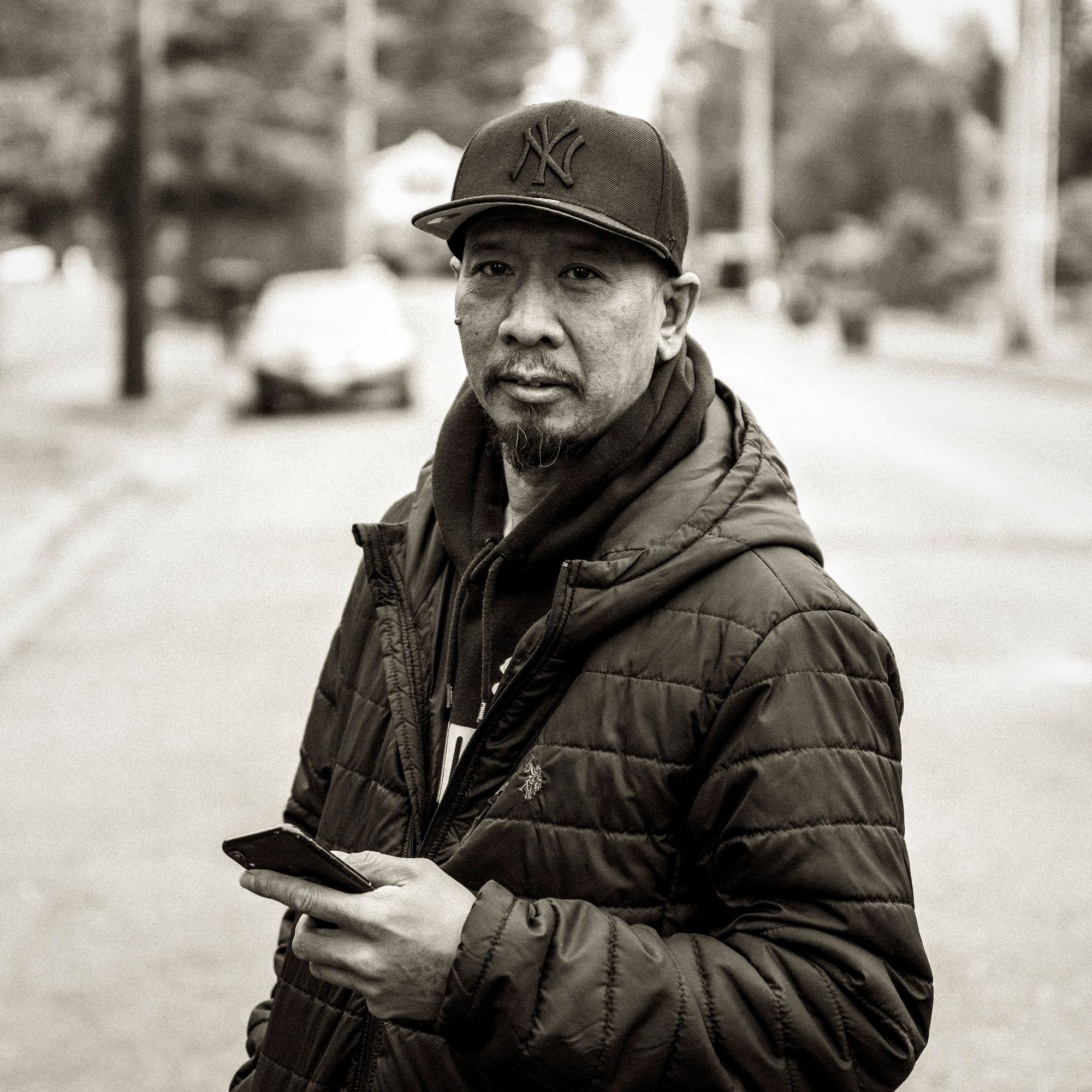
It was the fall of 1991, and I was visiting the Cambodian Buddhist temple on Argyle Street, on Chicago’s north side. I was there ostensibly to photograph a Buddhist holiday celebration, documenting the prayers of a small group of monks in a room packed with Cambodian refugees. I had recently returned from Thailand where I had photographed Cambodian refugees in the massive Site 2 camp on the Thai-Cambodian border and was pivoting away from being an academic to being a photographer, and was starting what eventually became a three year project documenting the lives of Cambodian refugees in the US.
In the back of the room in the temple, though, I saw a small group of young men, 15 to probably 18 years old, shuffling around, donning baseball caps and sports tops, looking both uncomfortable and bored. It was among them that I met the then 16 year Gino, an encounter that would change the direction of both my work and my life.
Gino’s sister Savan lived up the street from the Khemaran Temple on the corners of Argyle and Glenwood, in a two bedroom apartment overlooking the corner where dozens of Cambodian refugees and their children had settled and often hung out. Gino had moved to Chicago from his parent’s home in Bakersfield, California to live with his sister and escape the gang violence that had nearly taken his life there. In Chicago he was in a Cambodian gang called the OLBs - the Original Loco Boyz - one of the many Asian, Latino and Black gangs that spread across Chicago and US in the 1980s and 1990s. For nearly three years Gino acted as my guide and guardian angel, introducing me to Cambodian gangs across the midwest and later in California, for a project that eventually became my master’s thesis in photography at Columbia College in Chicago. The work was recently published as a small book by Catfish in the UK, titled On the Corners of Argyle and Glenwood.
Born a week before the Khmer Rouge takeover of Cambodia in April, 1975 in the village of Sala Krau in Pailin Province, Gino’s life reflected the trauma he and his family suffered during the genocide, civil war and subsequent escape to Thailand as refugees, all following America’s disastrous war in Vietnam that spilled over into Cambodia in the late 1960s.
After three years working on the project, in 1994, I left the US to live in Bangkok and start work as a photographer covering Southeast Asia, in particular the ongoing civil war in Cambodia and aftermath of the Khmer Rouge genocide. My life moved on but I always remembered Gino and the young men and refugees who welcomed me into their world and let me document their lives. Over the years I've constantly reedited the work, and from 2006 until 2010 I returned to Cambodia numerous times to document men similar to Gino who had been deported from the US back to Cambodia after serving time in prison.
However, it was only this week, after nearly 30 years, that I reunited with Gino, who was in Tacoma visiting his cousin. He now lives in Janesville, Wisconsin, a small town about 100 miles northwest of Chicago, with his wife, 5 kids and 4 grand children. Gino’s life has certainly moved on from his days with the OLBs, but he is still in the most basic sense, simply a survivor. A survivor of genocide, of the trauma of being a refugee and a survivor of gang wars & pervasive poverty in the US. While his days hanging on the streets of Chicago are behind him, he mainly works odd jobs, doesn’t seem interested in finding a full time work, let alone career of any sort, and simply wants to enjoy life, family, food and, most importantly, the community he gets from his fellow Cambodian refugees and survivors. I was naively, and rather arrogantly, hoping that he may have “gotten his life together”, moved on, advanced in life. But I was imposing my privileged view of the world on him, one where those things seem possible or even necessary. Gino is simply surviving, but in the same kind, gentle and generous manner I remember from 30 years ago.
Photographs of Gino taken from 1991 until 1994
